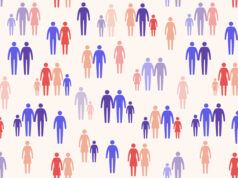
The Federal Trade Commission has sued data broker Kochava for allegedly selling data that tracks when people visit reproductive health clinics.
“Where consumers seek out health care, receive counseling, or celebrate their faith is private information that shouldn’t be sold to the highest bidder,” said Samuel Levine, director of the FTC’s Bureau of Consumer Protection in a news release. “The FTC is taking Kochava to court to protect people’s privacy and halt the sale of their sensitive geolocation information.”
According to the FTC complaint, Kochava collected data that showed when cell phone users visited reproductive health clinics that could be tracked to single-family residences, thereby giving clues about their identity. The same type of data may also be used to identify medical professionals who perform, or assist in the performance, of reproductive health services.
The Idaho-based company purchases geolocation data from hundreds of millions of mobile devices, according to the FTC. Then, Kochava matches time-stamped latitude and longitude locations with unique mobile device identification numbers and packages the ID info into a customized data feed.
Kochava sells these data feeds to clients who use the data for advertising and analyzing foot traffic at their stores and other locations.
Along with tracking data that showed visits to reproductive health clinics, Kochava also collected data on visits to addiction recovery centers, places of worship and shelters for unhoused people. This information could reveal the location of people who are escaping domestic violence or other crimes, the FTC said in the news release.
“The release of this data could expose them to stigma, discrimination, physical violence, emotional distress, and other harms,” said the FTC statement of the threat to consumers.
The FTC claims that Kochava published marketing materials that advertised the product’s ability to identify specific households by using geotracking data.
In July, the commission announced it would crack down on efforts to stop the illegal sharing of health data. Although the commission did not directly state it was connected to the overturning of Roe v. Wade, many lawyers have expressed concerns about health privacy in light of the legislation.
The commission is hosting a public forum on commercial surveillance on September 8.
Image: David Tran, Getty Images








